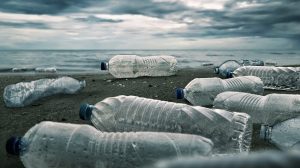An effective plastic policy should not be reactionary; there should be coordinated approach, public scrutiny, and policy standardisation

The Nigerian Youth Biodiversity Network (NYBN), the official youth constituency of the United Nations Convention on Biological Diversity (UNCBD-GYBN), Nigeria chapter, and the Sustainable Environment Food and Agriculture Initiative (SEFAAI), a UNEP and UNCBD accredited environmental NGO, salutes the courage and boldness of the Lagos State Ministry of Environment and Water Resources in enacting a public plastic policy aimed at curbing plastic pollution and its incessant environmental problems in the state.
It is no news that plastic pollution remains a major talk of national and international communities, exacerbating the crises of solid waste management, marine litter, climate change and biodiversity loss. Plastic pollution has altered habitats and natural processes, reduced ecosystems’ ability to adapt to climate change, directly affected millions of people’s livelihoods – most especially the local and indigenous peoples around the corridors of marine and coastal communities, food production capabilities and social well-being. It has choked marine wildlife, poisoned groundwater and damaged soil biodiversity, consequentially causing various grades of damage to public health.
Plastics still serve some economic good such as helping increase product shelf life;,allowing easy accessibility of food materials, protecting food from contamination thus reducing food waste, among other use in our day to day lives; the negative manifestations of plastic pollution to both human and environmental health coupled with the obtainable realities and existentialities of environmental pollution in Lagos State, we have no option than to institute a policy solution to the menace caused by plastics not just in Lagos State, but across Nigeria.
Just like every other environmental problem such as climate change, loss of biodiversity, desert encroachment, poaching, and illegal trafficking of wild animals, plastic pollution is also endemic in its international character and its impact is trans-boundary. It is on this basis we wish to express our opinion on the recent ban on single-use plastic and styrofoam packs – commonly called “take ways”. The ban is a welcome development that all environmental stakeholders should support and commit to its implementation. It the best way forward for a sustainable environment and circular Lagos.
Our reservation is therefore based on the fundamentals that the Lagos State Ministry of Environment and Water Resources did not carefully examine nor patiently pass through the process of imposing a plastic ban. A ban on single-use plastics and styrofoam packs must come with practical alternatives that will make consumers and businesses (especially the big multi-corporations that produces plastic drinks, bottled water and plastic packaging materials) easily tag along with the ban, most importantly when they are to go entirely without plastic.
Ensuring that business can source for alternative business models is also important and critical. To maintain public support for the plastic ban, it also helps if there are measures which prevent cost being passed directly to consumers. Also, remember that single-use plastic materials as well include sachet water and other nylons used in food packaging at industries and other forms like nylons used in packaged confectioneries and bread.
Contextualising plastic pollution in Lagos and other states across Nigeria, a phased approach to plastic ban should have been better, with consistent and clear messaging on what material is banned and the timeframe for such material to be phased-out. This approach is essential because the problematic nature of plastic and its management must critically include stakeholders’ engagements, education and awareness raising, series of consultation processes that will include the big manufacturers and critical layers of the consumers, financing the implementation process and strategies for creating public acceptance.
Plastic policies should as well include clearly defined monitoring and evaluation framework, which should as well include the stakeholders’ agreement to ensure policy effectiveness and standardisation. Given that plastic pollution is generated at all stages of the lifecycle, a coordinated whole life-cycle approach to plastic ban is crucial.
The Lagos State Government must therefore balance the plastic policy with careful considerations to the entire plastic life cycle and focus to circularity and reduced reliance on bottled drinks and bottled water. Plastic policy targeted at downstream action will never yield the required result. We therefore encourage the state government, the Ministry of Environment in particular, to develop a plastic policy that will be integrated with climate actions, protection of natural ecosystems, conservation of marine and coastal communities, and a paradigm shifts to change the consumer lifestyle in Lagos State.
In terms of enforcing the plastic ban, it is completely efficient for the Lagos State Government to integrate Extended Producer Responsibility, public acceptance and transparency; the state should employ market mechanisms, plastic taxes, incentives, behavioral change and other innovative mechanism. Using KAI to enforce plastic ban will mean using an arm of state force and apprehension to enforce the plastic pollution law.
We therefore appeal to the Commissioner for Environment, Lagos State Ministry of Environment and Water Resources, to consider the policy standardisation process and approach of enacting a plastic policy recognised by the international communities. To always go the Nigerian way in terms of our environmental governance system is not putting us in the good records of the international community. We believe Lagos can lay the pathway for others.
Without the Lagos State Government creating these supporting measures as highlighted above, or failing to see the importance of stakeholders and civil society engagement in plastic ban processes, and also understanding that plastic ban is the beginning of a broader phase-down of plastic in a circular Lagos economy, and across Nigeria, the new plastic ban will tend to generate more discord among the government, big businesses and other layers of the private sector in Lagos.
